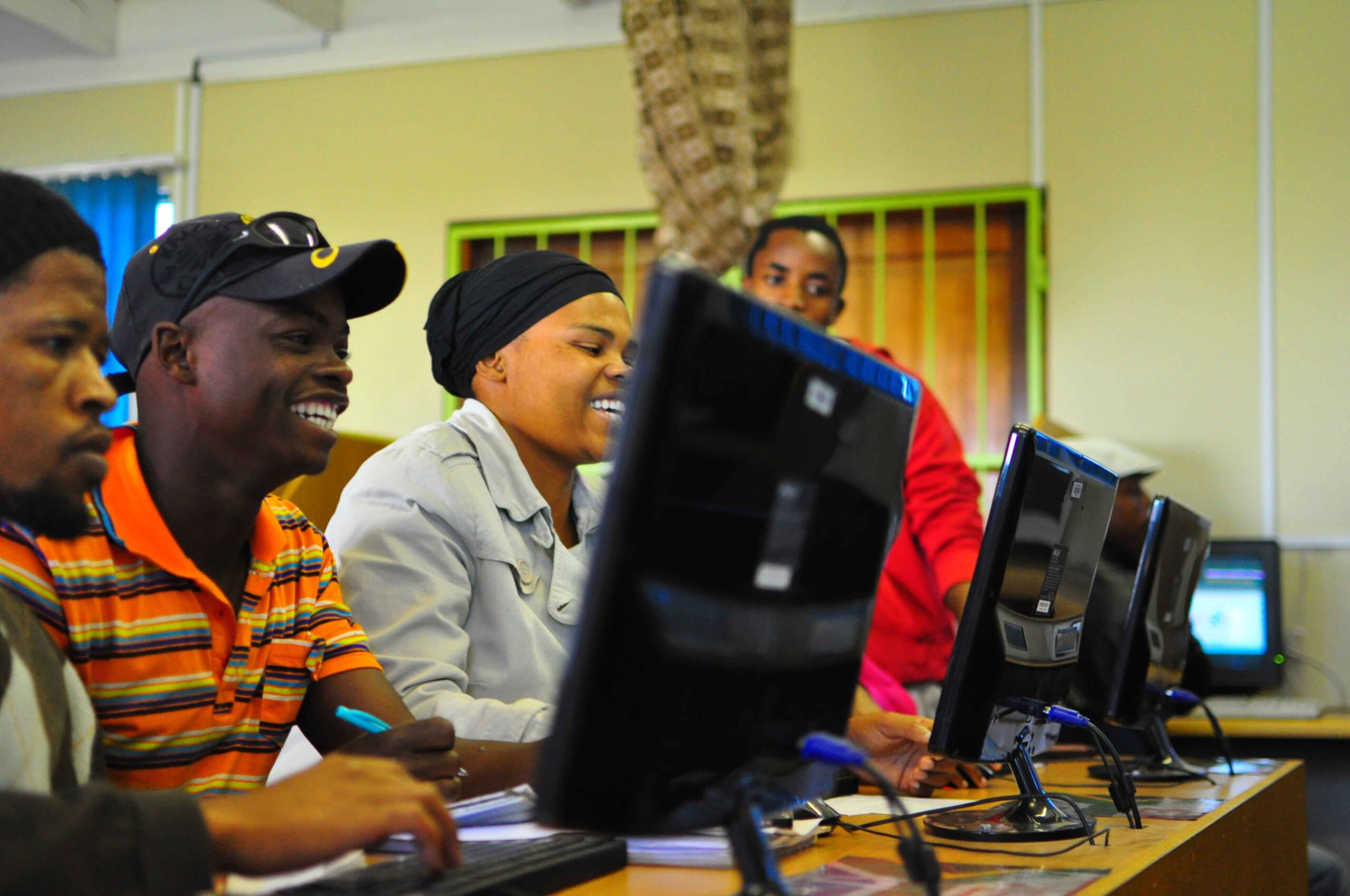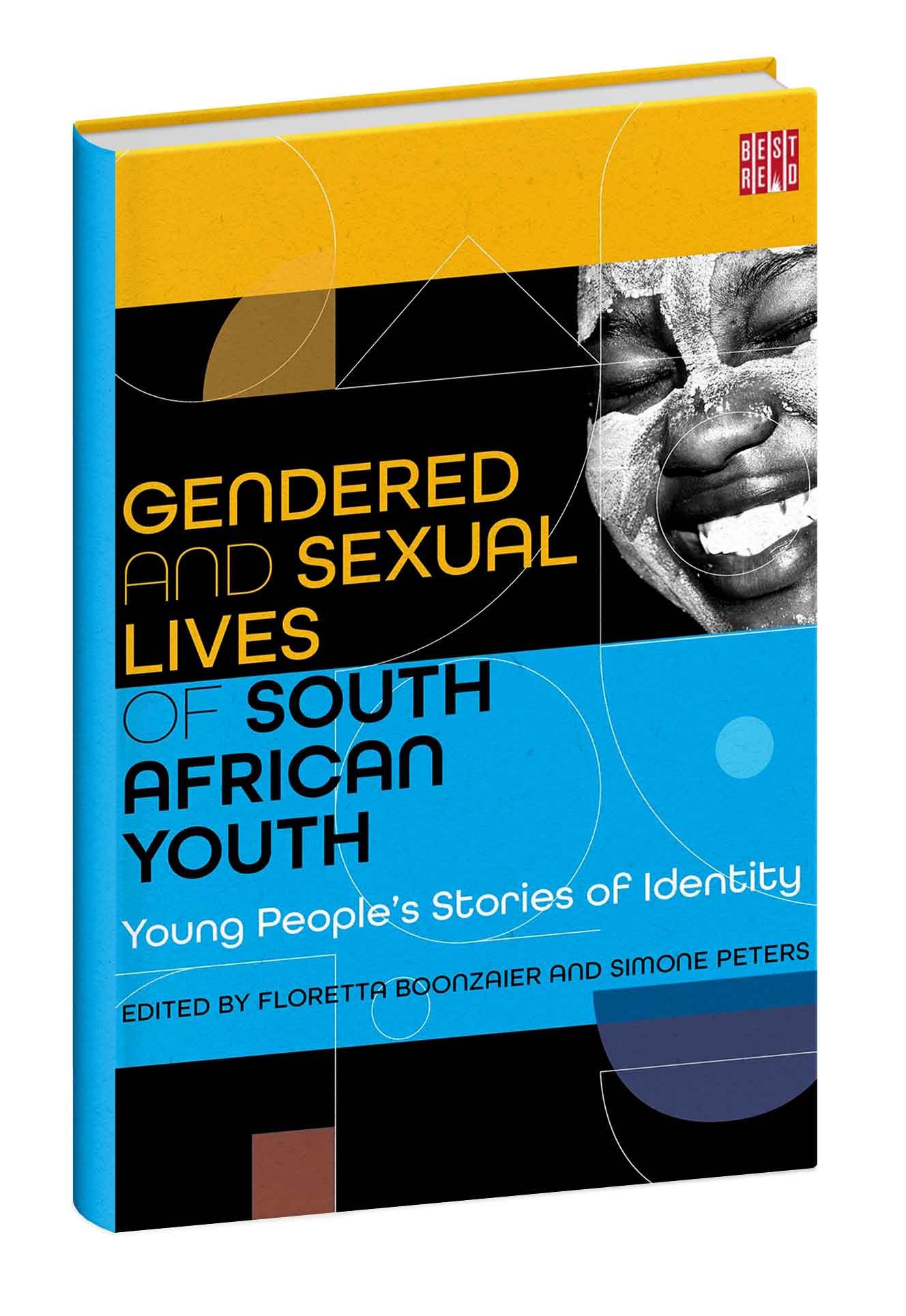Since the creation of the internet, governments have used electronic platforms to engage and communicate with their people. Yet a socio-economic divide in South Africa persistently offers some groups more access to participation in policy and planning processes than others. Considering this inequality and the importance of technology in modern democratic life, the HSRC’s e-Participation and Policy Modelling Platform for South Africa (ePPMOSA) project is working to facilitate effective and inclusive e-participation governance and implementation. By Jessie-Lee Smith

Photo: Beyond Access, Flickr
Public participation is a cornerstone of democratic processes in South Africa and is defined as an open, accountable process through which individuals and groups within selected communities can exchange views and influence decision-making. When properly implemented and managed, public participation can ensure that developmental plans and services are more relevant to local needs, improve service delivery oversight, and promote community action by empowering communities to take control and responsibility over their own lives and livelihoods.
Over the past 20 years, South African government agencies have adopted and implemented public participation mechanisms through the use of digital technology. National and local government bodies and municipalities share policy, planning and performance information on their respective websites, and have also encouraged public participation by inviting comments via website forms or email submissions. In addition, various departments, legislatures, towns and cities have experimented with digital tools, such as social media open data and artificial intelligence, to facilitate civic engagement and communication.
The HSRC is committed to enhancing democracy by promoting transparent governance and accountable leadership, and revitalising public participation. Now, the use and impact of digital technology have become a key research focus of its e-Participation and Policy Modelling Platform for South Africa (ePPMOSA) project.
The ePPMOSA project intends to guide the implementation of e-participatory pilot projects in six South African municipalities. By researching international e-participation practices; running workshops to identify where municipalities currently struggle and thrive in this arena; building demonstrations and proof of concept applications; and developing an online toolkit, the project team works with stakeholders to deepen its knowledge of implementing inclusive e-participation.
The project places a strong emphasis on peer learning as an approach to information gathering and the design of pilot projects. Peer learning is essential to the success of e-participation initiatives because of rapid changes in the technology space, and uncertainty about which tools and methods are suitable for local contexts. “Peer-learning facilitates the exchange of knowledge and practical experiences between practitioners,” says Dr Tlou Ramoroka, a chief research specialist at the HSRC. “Peer learning also helps individuals to feel more connected to one another, building a sense of solidarity amongst municipality and government practitioners,” she adds. Through a helpful network that endures beyond the e-participation initiative, the project team hopes to sustain creative thinking and the implementation of innovative solutions that can support inclusive and effective public participation.
As a result, multiple workshops are being held in municipalities to facilitate sharing between different departments on how they go about public participation and any opportunities they identify to utilise technology. In addition, two group workshops have been held in partnership with the Civic Tech Innovation Forum, in which all the ePPMOSA partner municipalities – from Rustenburg to Cape Town – meet and share ideas and lessons on e-participation. Insights from this and other workshops will be used to empower and inform e-participation technologies, governance and implementation.
How e-participation is designed, implemented and managed is essential to ensuring inclusive outcomes. This is especially true in South Africa, where unequal access to resources and technology continues to prevail. A recent review article by HSRC researchers compares how the international community approaches the governance of e-participation to South Africa’s own legislative and policy frameworks. The comparison was made with South Africa’s mandate of increasing the inclusivity of marginalised groups in mind.
The research highlights two additional points: that e-participation needs to align with a broader programme of digital empowerment and rights, rather than create harm or worsen inequality; and that, with the growth of online movements, governments need to plan how to engage with civic-led and bottom-up engagement more effectively. These observations suggest a great need for the development of supporting frameworks and tools, which will aid actors in implementation and governance.
“To increase the efficacy, inclusivity and security of digital democratic processes, further research on e-participation research is crucial. It offers the body of knowledge required for stakeholders, technologists and policymakers to make well-informed decisions and progress in this area,” says Ramoroka. At the same time, this research needs to be translated into practical frameworks and tools to support the successful implementation and governance of e-participation. To address this objective, the ePPMOSA team has initiated a living toolkit, which provides updated and relevant information on e-participation, drawn from hundreds of projects and pilot pioneers.
This toolkit is updated regularly with new information relating to several key elements of e-participation. For example, the accessibility of public participation at low costs and with available technology is an important element of e-participation. To this end, the ePPMOSA toolkit provides links to multiple projects showing how accessibility can be improved. One instance is MomConnect – a South African National Department of Health initiative – which has shown the effectiveness of WhatsApp and SMS technology in connecting with constituents and guiding their experiences with government services. Other key elements covered by the toolkit include verification of participant identity; protection of personal information; moderation of online conversations; organisation of inputs; tracking of the participation process; and civic education on public participation processes and the use of technology.
The team continues to present and share its experiences in various spaces, for example at a policy dialogue in 2023. “The participants emphasised that understanding the broader policy context in which e-participation is situated is important for effective implementation, diverse stakeholder engagement, legal and regulatory compliance, better resource allocation and strategic planning for e-participation projects, sustainability, and the impact of such initiatives,” says Dr Yul Derek Davids, a research director at the HSRC.
Considering the importance and power of technology in everyday life, the path towards more electronic governance needs to be navigated thoughtfully and carefully. The ePPMOSA team has been working from many angles to foster effective and inclusive e-participation practices in South Africa. This project is ongoing and is expected to start launching pilot projects during 2024.
Note:
The ePPMOSA project is an initiative of the Department of Science and Innovation and the South African Local Government Association, supported by funding from the European Union and South African National Treasury. It is implemented by the HSRC’s Developmental, Capable and Ethical State division and Impact Centre, in collaboration with the Council for Scientific and Industrial Research and the University of KwaZulu-Natal.
Research contacts
Dr Yul Derek Davids, research director, Dr Tlou Ramoroka, chief research specialist, and Dr Simangele Dlamini, senior research specialist, at the HSRC’s Developmental, Capable and Ethical State division – ydavids@hsrc.ac.za | tramoroka@hsrc.ac.za | sdlamini@hsrc.ac.za
Dr Paul Plantinga, senior research manager in the HSRC Impact Centre – pplantinga@hsrc.ac.za


